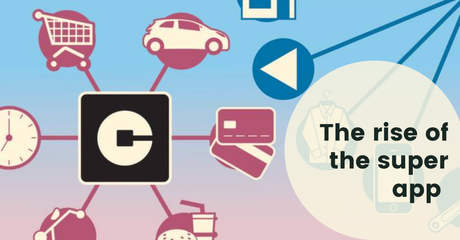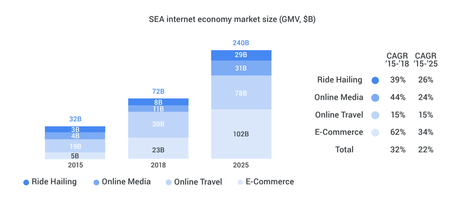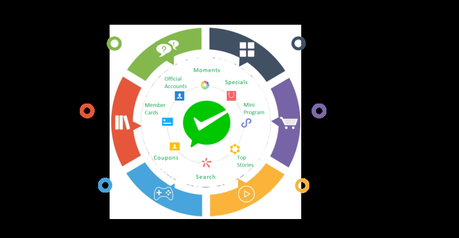
The best way to think about the super app is that it's a single gateway into any ecosystem of virtual products and services.
It offers a one-stop-shop for customers to communicate to buy things online, to book travel.
They even allow users to search for a date. It's a trend that started in China, it's now spread through Asia, and we think that in 2020 it's going to be a big tent in the West here, in Europe and North America.
Top super app from East
Gojek and Grab started as uber clothes carrying passengers and delivering food now they're an indispensable part of daily life but the rivals are also leading online payments revolution is this the future of digital banking.
Southeast Asia has a population of 650 million and for most people here the only way to get online is a mobile phone
For Gojek and Grab that's a huge market one that's helped them to grow into multi-billion dollar companies

The transformation taking place in Indonesia goes beyond ride-hailing food delivery even massages on demand to companies that didn't exist a decade ago are inserting themselves into the daily lives of Indonesians
These big techs are radically transforming the way money moves around Indonesia this is a digital financial revolution
Travel is an important segment for these super apps. All you have to do is look at grabs recent introduction of hotel booking in their app, and this is through a partnership with booking.com and Agoda.
WeChat, they now have a booking service that allows users to book hotels, rail and flights through the app.

KLM now has fully integrated dear mobile website into the WeChat account. Once a flight booking has actually been made, users can then receive notifications on when to check-in, they can receive their boarding pass directly to their WeChat account, they can even speak directly with KLM support staff we are the chat interface of the app itself.
So some of the main contenders for supreme status in Europe and North America would be maps Google maps, Facebook com and Uber.
Delivering a frictionless travel experience as always been the holy grail for them.
Where they manage the interaction from the moment they booked the travel, right until they return home.
However, with the surge of popularity of these super apps, a lot more of these experiences are going to have to be delivered through the medium of a super app. As opposed to being handed travel brands on the channel.
So super apps are having an impact on the OTA space. OTAS where the original receptor is within the travel space but they are now at risk of being disrupted by disruptors, which are the super apps in this case.
Super have super apps have the benefit in terms of they have their own ecosystem. They are now starting to add new products and services in travel space.
So this means that users are going to be more inclined just to do the bookings within the ecosystem Of the super app, as opposed to moving to the channel of OTA.
It's affecting the relationship between the OTA and their customer because they are one step removed from the super happy ecosystem.
That's why it's really important for OTAs to offer a more personalised and immersive experience for travellers, where they are with the user through each stage of their journey and to ensure that when users think about booking, that they do in the OT channel, as opposed to the super app.
It's about looking at it from a holistic point of view and creating a more immersive experience.

